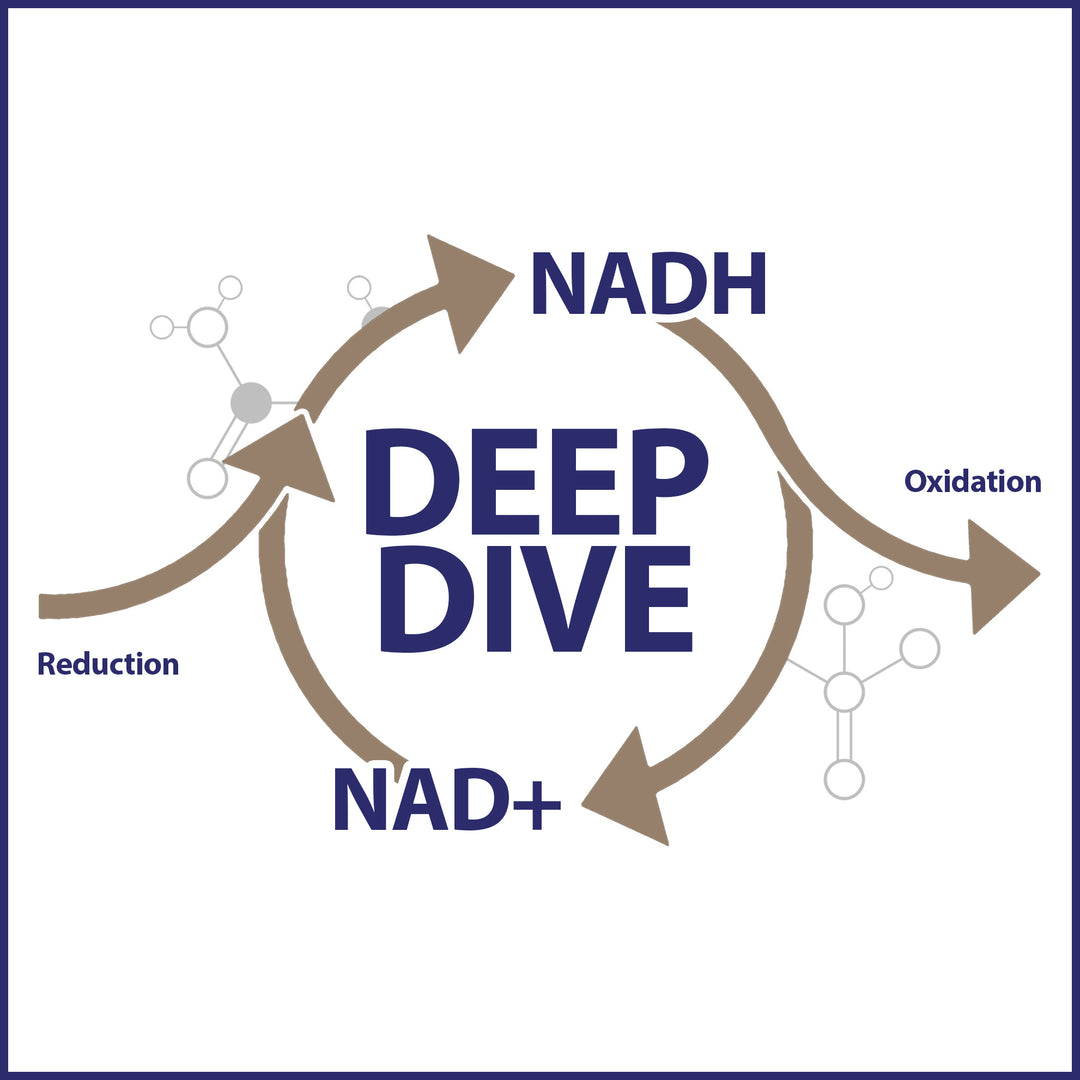Food is a critical part of our culture, and the choices we make about it affect every aspect of our lives. Many of us have heard the saying, "shop around the edges of the grocery store, that's where the most nutritious foods are”. Well, we hate to be the bearer of bad news, but unfortunately even the edges of the grocery stores are being impacted by declining nutrition.
The food in most supermarkets today looks nothing like the produce found just a mere 15 to 20 years ago. Actually, let me clarify. The outside of our fruits and vegetables looks better: brighter colors, less bruises and even bigger in size; but what is inside is the problem. In this blog, we are going to dive into the changes in our food system and share with you the critical things you need to know about how our food has changed and why supplements have become an important part of a healthy diet.
Did You Know You Are Not Eating the Same Foods That Your Grandma Ate?
Official studies show, most of our fruits and vegetables’ nutritional values have drastically decreased since the 1970s and continue to do so.
According to the USDA, nutritional values for fruits and vegetables today compared to 1975 are radically less!
When you bite into that luscious red apple you are getting 41% less Vitamin A. The sweet peppers you meticulously place on that vegetable platter for your family BBQ only offer 69% of the Vitamin C they had when your grandparents parents made the tray.
All of those "good for you" vegetables that we cajole, manipulate or cover in cheese sauces to get our kids to eat are lacking:
- Apples – Vitamin A is down 41%
- Broccoli – Calcium and Vitamin A is down 50%
- Cauliflower – Vitamin C down 45%, Vitamin B1 down 48%, Vitamin B2 down 47%
- Collard Greens – Vitamin A down 45%, Potassium down 60%, Magnesium down 85%
- Sweet Peppers – Vitamin C is down 31%
- Watercress – Iron is down 41%
So, when you hear your grandparents say,
"We used to just eat steak, potatoes, and spinach back in the day…and we were as healthy as a horse" or “In our day, people didn't have gluten issues, chronic immunity problems, or all these allergies”
...and the list goes on. Well, Grandma was right. It turns out that the veggies she was feeding her family were pretty much all they needed. Food was chocked full of more nutrients and nutritional value. So, the truth is that she and grandpa could eat fresh foods and get everything they needed. But sadly this is just not true today.
Why Foods Today Are Not as Nutritious as Years Past!
Even if you eat organic and non-GMO, you will want to read this section!
Pesticides and Fertilizers
Without a doubt, you’ve heard the complaints about the excessive use of pesticides and fertilizers in modern farming practices. And we are well aware of the impact this has on toxin loads in our bodies. There is another side to this practice that has a huge impact on the nutritional values of our food today.
The heavy use of fertilizers and pesticides result in nutrient-poor crops and foods. In fact, the organic market thrives on these complaints, but going organic won’t solve the problem and both conventional and organic farmers use excessive pesticides. The only difference being the type and quantity of pesticides they are allowed to use.
Cross-Pollination
Another issue is cross-pollination. There can be one field that is “organic” but there can still be wind or bees that pollinate the GMO crop and come over to the organic field nearby.
Current Farming Practices
Organic and local farms do have better quality nutritional value, but they still have a big decrease in nutrients, especially because of soil and nutrient depletion.
Our current farming practices seek to optimize agricultural production, but this is at a cost. Pesticides used to help produce more yield end up sterilizing the soil. Conventional and organic farming both still show decreased nutritional value when compared to decades past.
According to the USDA, U.S. crop plants contain only a fraction—as much as 80% less—of humic and fulvic acids, vitamins, minerals, amino acids, phytochemicals, and other nutrients that they contained roughly a century ago.
Beyond putting toxins into our foods, one of the big issues is that any pesticides used on crops, seep into the soil damaging or outright killing beneficial microorganisms. These microorganisms are responsible for ensuring new plants receive minerals from the soil by breaking down dead plant material to produce other key elements which provide high quality nutrition. All of this leads to a reduced amount of humic and fulvic acids in our plants.
What Are Humic And Fulvic Acids and Why Should I Care?
Humic and fulvic acids carry trace minerals in the soil into new plants through their roots. Plants use these trace minerals, along with sunlight, to make the amazing vitamins and other nutrients we need from produce to be healthy and thrive.
Remember that apple from ten years ago? When you bit into it, the flavors were rich and intense. But compared to the apple you get in a mainstream grocery store today, the apple looks amazing, but the flavor is not there. That difference is the availability of humic and fulvic acids in the apple tree’s soil when growing that apple.
Humic and fulvic acids are essential for health, because not only are they nature’s most powerful electrolyte, they also …
- Transport vitamins, amino acids and phytonutrients
- Bind heavy metals and toxins to safely eliminate from the body
- Promote cellular energy
- Aggressively neutralize free radicals
Without these functions working well in the body, it’s easy to see how disease and bodily dysfunction can occur.
Of course, there are always small outliers. If you have a very small, permaculture farm which replenishes nutrients in the soil, then you can have high quality vegetables and fruits. But this is not true for the majority of the population and the food they are eating. And it’s not what can create great quality food at scale.
Why Is All of This Important?
The two main reasons we need to supplement our diet are the additional toxins and soil depletion in farming practices. In North America, over 50% of our crops are now grown in a way that removes all their nutrients. These include potatoes, tomatoes, wheat berries, corn...you get the point. This means that it's not just deficiency, but also absolute nutrient starvation.
Even if you eat an incredibly balanced Keto, Organic, Mediterranean, Vegan or Vegetarian diet (whichever you prefer), it’s just an unfortunate fact that the amount of nutrients in all the vegetables and food we eat has gone down steadily and drastically over the past few decades.
Even if you’re eating a healthy diet, you just are not getting sufficient amounts (and nutrient-rich quality) of vitamins, minerals and other nutrients your body needs for optimal health.
What This Means to You and Your Health!
There is a compounding issue affecting our ability to have optimal health. Not getting enough nutrients from food as we used to; introducing more toxins to our bodies; and not having the nutrients to help the body use and detox the nutrients it does get...all add up and make it harder for your body to work for you day in and day out.
How Do I Ensure I Have the Nutrition I Need Every Day?
Taking supplements is not just for those who are sick or have an illness. In fact, in order to achieve optimal health, we must supplement our diets with quality nutrients. Products like Dr. Tennant’s® Restore provides all the vitamins, minerals, amino acids and a substantial amount of protein for your daily needs in a bioavailable (ready for your body to use) form. And Dr. Tennant’s® Raw Materials™ Capsules or Liquid provides humic and fulvic acids, which are the trace minerals for absorption, use and detox support.






















